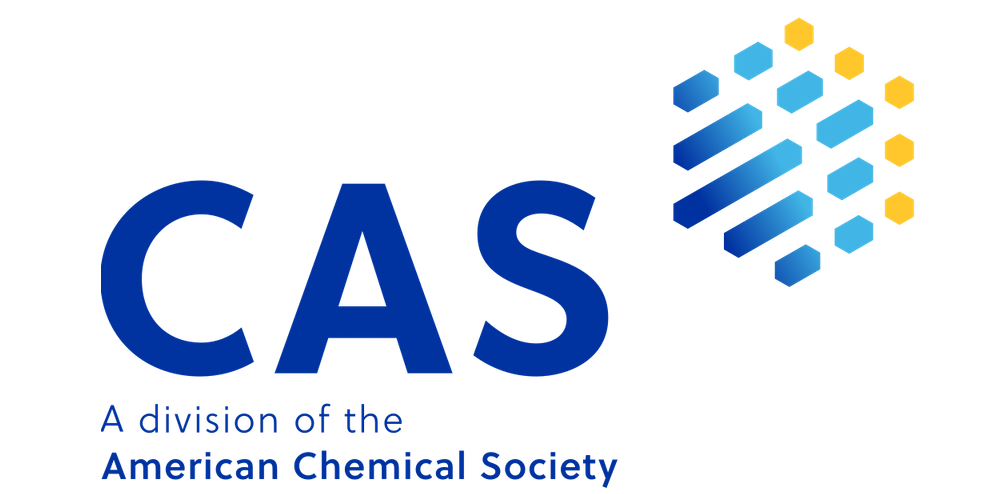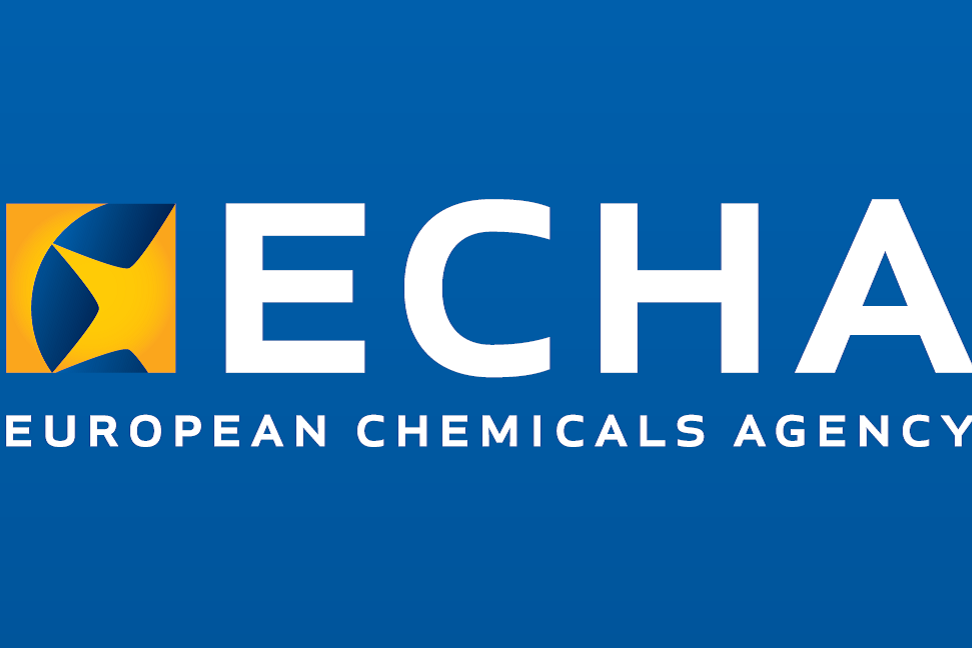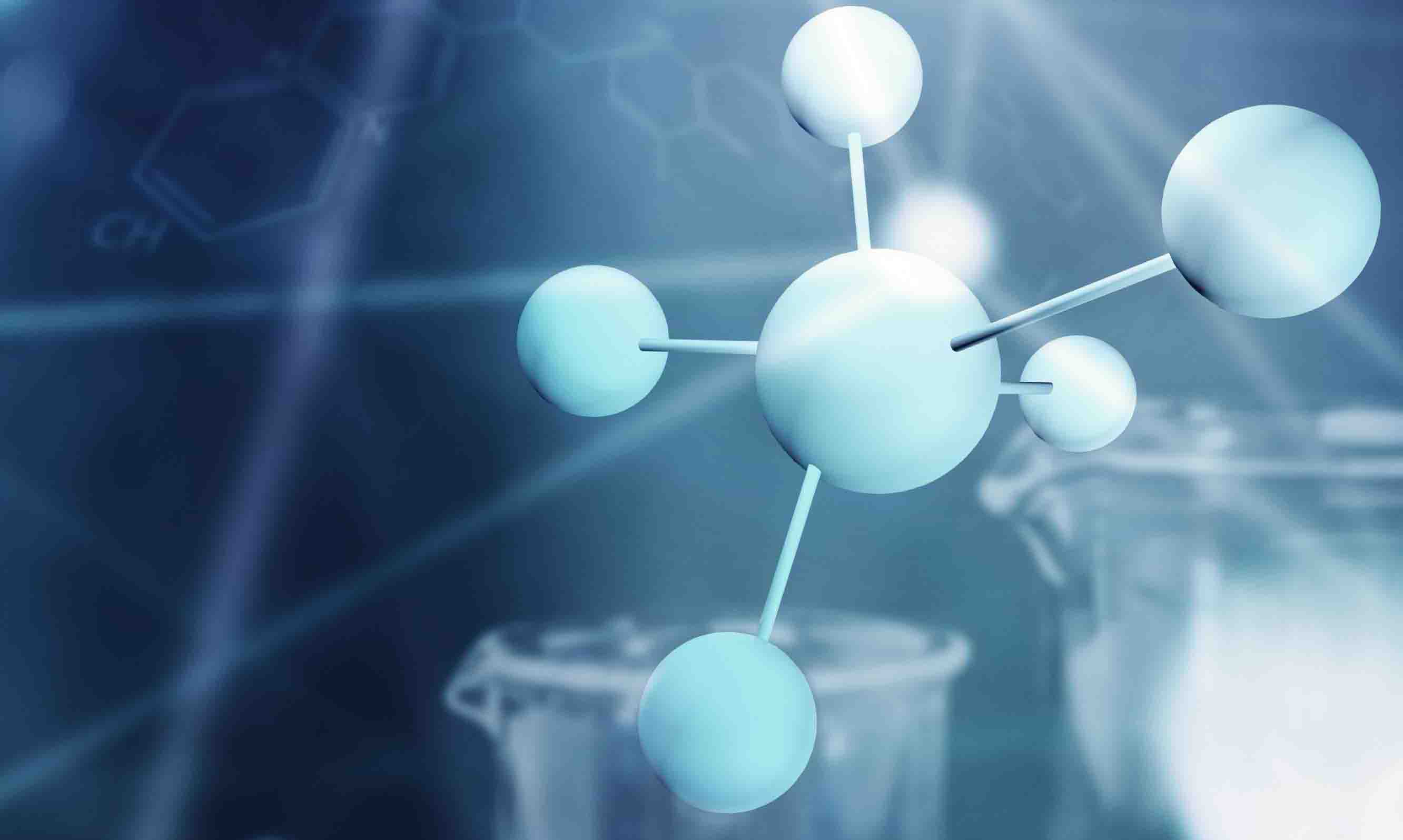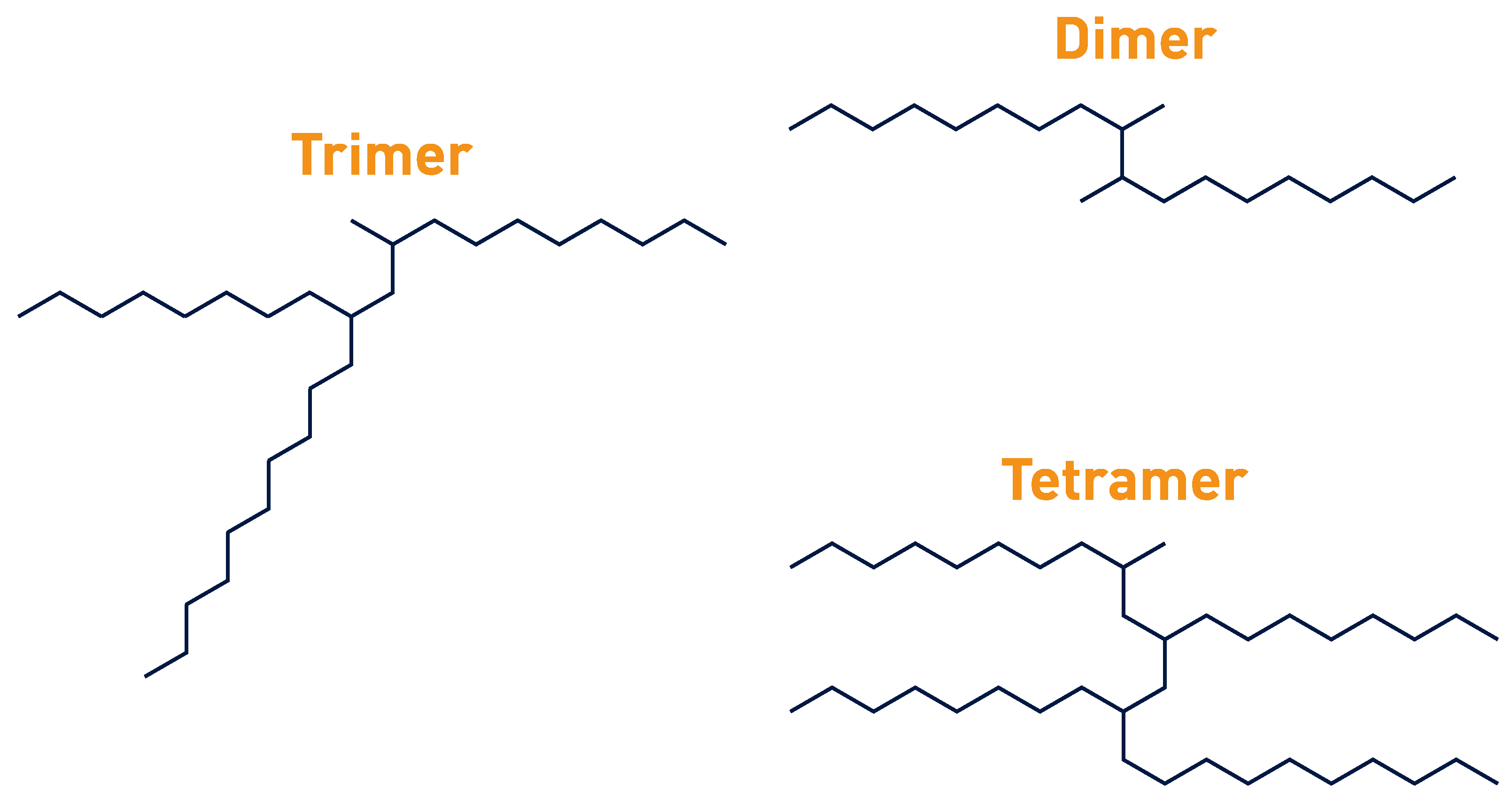Chemical Foundation and Structure
1-Decene based polyalphaolefins (PAOs) are synthetic hydrocarbon lubricant base oils produced through the oligomerization of 1-decene (C₁₀H₂₀) followed by hydrogenation. These PAOs represent the most commercially significant and widely used synthetic base oil category, forming the backbone of the global PAO market due to their optimal balance of performance properties.
1-Decene offers several advantages as PAO feedstock:
- Optimal carbon chain length: Provides ideal balance between viscosity and low-temperature properties
- High reactivity: Terminal double bond enables efficient oligomerization
- Excellent oligomer distribution: Produces desired trimer/tetramer ratios
- Superior branching: Creates highly branched, compact molecular structures
Molecular Composition
1-Decene based PAOs consist of mixtures of oligomers with varying degrees of polymerization:
| Oligomer Type |
Formula |
Carbon Count |
Typical Distribution |
| Dimer |
C₂₀H₄₂ |
20 |
2-5% |
| Trimer |
C₃₀H₆₂ |
30 |
15-40% |
| Tetramer |
C₄₀H₈₂ |
40 |
40-65% |
| Pentamer |
C₅₀H₁₀₂ |
50 |
10-25% |
| Higher oligomers |
C₆₀H₁₂₂+ |
60+ |
5-15% |
The oligomer distribution can be precisely controlled through process conditions to produce different PAO viscosity grades.
Commercial PAO Grades from 1-Decene
Standard Viscosity Grades
1-Decene based PAOs cover the most commercially important viscosity grades:
| PAO Grade |
Viscosity @ 100°C (cSt) |
Viscosity @ 40°C (cSt) |
Pour Point (°C) |
Viscosity Index |
| PAO 4 |
3.8-4.2 |
16-18 |
-65 to -60 |
124-130 |
| PAO 6 |
5.8-6.2 |
30-32 |
-57 to -55 |
135-145 |
| PAO 8 |
7.5-8.5 |
45-48 |
-51 to -48 |
138-145 |
| PAO 10 |
9.5-10.5 |
60-65 |
-48 to -45 |
140-150 |
Molecular Weight Correlation
1-Decene oligomer composition directly correlates with PAO viscosity grades:
- PAO 4: Predominantly C₃₀ trimers (60-70%) with some tetramers
- PAO 6: Balanced trimer/tetramer mixture (40-50% each)
- PAO 8: Tetramer-rich composition (50-65%) with pentamers
- PAO 10: Higher pentamer content (20-30%) with tetramers
Unique Properties of 1-Decene Based PAOs
1-Decene oligomerization creates distinctive molecular architectures:
Quaternary Carbon Centers
Advanced 1-decene PAO formulations contain quaternary carbon centers that enhance performance:
- Star-branched structures: Create compact molecular geometries
- Reduced rotation radius: Improves low-temperature fluidity
- Enhanced viscosity index: Better temperature-viscosity relationships
- Superior oxidative stability: Saturated quaternary carbons resist degradation
Optimal Branching Pattern
1-Decene based PAOs exhibit highly branched, isoparaffinic structures:
- Long alkyl branches (C₈H₁₇) provide excellent viscosity-temperature performance
- Controlled branching density prevents excessive viscosity increase
- No wax formation: Amorphous structure maintains fluidity at low temperatures
Temperature Performance
- Exceptional low-temperature fluidity: Pour points as low as -65°C for PAO 4
- High-temperature stability: Continuous service up to 160°C
- Outstanding viscosity index: Typically 124-150 depending on grade
Volatility Characteristics
- Low NOACK volatility: PAO 4 (~13-14%), PAO 6 (~7%), PAO 8 (~4%)
- High flash points: Typically >240°C for safety and performance
- Excellent evaporation resistance: Extends lubricant service life
Advanced 1-Decene PAO Technologies
Metallocene-Catalyzed 1-Decene PAOs
Metallocene technology enables production of superior 1-decene based PAOs:
- Higher viscosity indices: Exceeding conventional BF₃-catalyzed products
- Improved molecular weight control: Precise oligomer distribution
- Enhanced branching uniformity: More consistent molecular structures
- Superior low-temperature properties: Better than industrial standards
Heterocene Catalysts
Recent developments in heterocene catalysis for 1-decene oligomerization:
- Competitive performance: Matches or exceeds industrial PAO standards
- Enhanced viscosity characteristics: Superior temperature-viscosity relationships
- Structural uniformity: More controlled oligomer architecture
Applications
1-Decene based PAOs serve as base oils for:
Automotive Lubricants
- Engine oils: High-performance motor oils for passenger cars and heavy-duty vehicles
- Transmission fluids: Automatic and manual transmission applications
- Gear oils: Differential and axle lubricants
Industrial Applications
- Hydraulic fluids: Wide temperature range systems
- Compressor oils: Rotary screw and reciprocating compressor lubrication
- Bearing oils: High-speed and high-temperature applications
Specialty Markets
- Aviation lubricants: Jet engine oils and aerospace applications
- Food-grade lubricants: NSF-approved formulations
- Cosmetic applications: High-purity base oils for personal care products
Market Dominance
1-Decene based PAOs represent the largest segment of the global PAO market:
- Volume leadership: Majority of commercial PAO production uses 1-decene feedstock
- Established supply chains: Mature infrastructure for production and distribution
- Performance benchmark: Industry standard for synthetic lubricant base oils
References
Based on information gathered from the following sources: Neste, Chevron Phillips Chemical (Polyalphaolefins Technology), Chevron Phillips Chemical (Product Stewardship Summary PAO 4-10 cSt), CN113136254A, WO2007111775A1, ACS Publications, Orrizonté Oil, Science Direct (Applied Catalysis), Science Direct (Molecular Catalysis), PubMed Central, KCK Lubricants, ReseachDive,


 CAS Number
CAS Number
 EC Number
EC Number
 ECHA InfoCard
ECHA InfoCard
 PubChem ID
PubChem ID








